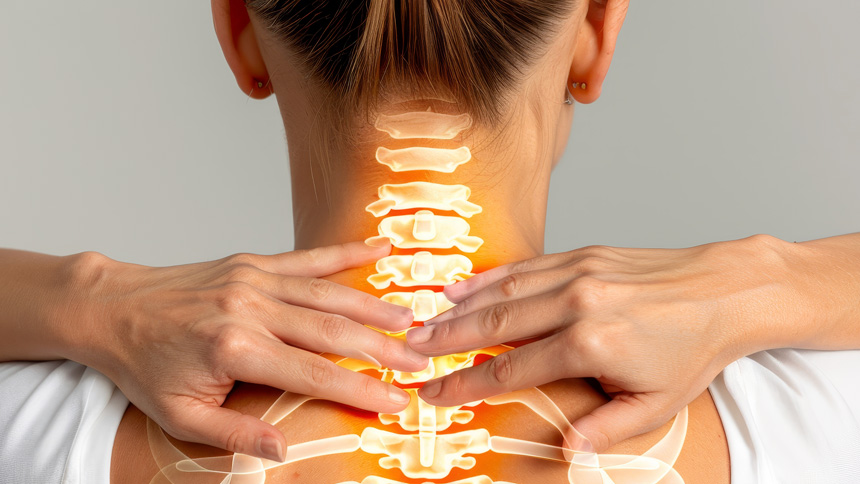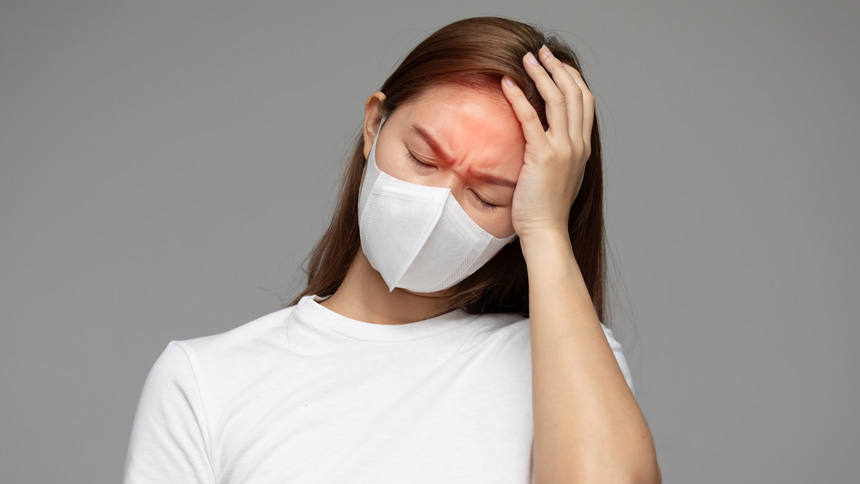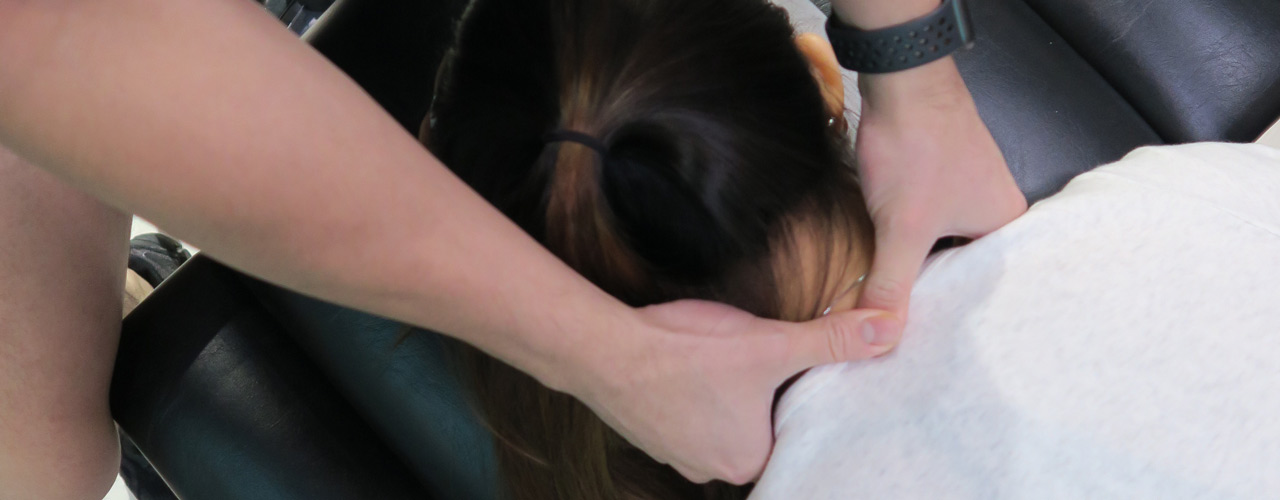Poor Posture
Neck pain is frequently caused by poor posture, particularly in individuals who spend extended periods sitting at desks or using mobile devices. Slouching or leaning forward can strain neck muscles and ligaments, leading to discomfort and pain.

Alleviation
To maintain proper posture, ensure that your computer monitor is at eye level and your chair supports the natural curve of your spine. Regularly check your posture and adjust as necessary. Physical therapy services can provide personalized exercises and stretches to strengthen the neck and back muscles, further preventing poor posture-related neck pain.
Muscle Strain
Sudden movements, heavy lifting, or repetitive activities can cause muscle strain in the neck. This strain results from tiny tears in the muscle fibers, leading to pain and stiffness.

Alleviation
Alleviate muscle strain by incorporating regular stretching and strengthening exercises into your routine. Focus on neck-specific exercises such as gentle neck tilts and rotations. Visiting a Physiotherapy Clinic in Hong Kong can provide professional guidance on effective exercises and treatments tailored to your needs.
Text Neck
“Text neck” refers to the neck pain and damage sustained from looking down at mobile devices for extended periods. This condition is becoming increasingly common due to the widespread use of smartphones and tablets.

Alleviation
To alleviate text neck, hold your device at eye level to reduce strain on your neck. Take regular breaks to stretch and move your neck. Ergonomic adjustments, such as using a stand for your device, can also help. Incorporate physical therapy services to learn exercises that target the neck specifically.
Whiplash
Whiplash is a neck injury resulting from a sudden, forceful back-and-forth movement of the neck, often occurring during car accidents. This abrupt motion can cause neck pain, stiffness, and headaches.

Alleviation
Rest and over-the-counter pain relievers can help manage initial whiplash symptoms. Physical therapy services play a crucial role in recovery by providing exercises that restore range of motion and strength. Additionally, applying ice and heat alternately can reduce pain and inflammation.
Cervical Herniated Discs
A herniated disc in the cervical spine can cause neck pain by pressing on nearby nerves. This condition can result from wear and tear, injury, or sudden strain.

Alleviation
Treatments for herniated discs include physical therapy, medications, and lifestyle changes. Physical therapy services can offer exercises to strengthen the neck muscles and improve flexibility. In some cases, corticosteroid injections or surgery may be necessary to alleviate severe pain.
Osteoarthritis
Osteoarthritis, a degenerative joint disease, can affect the cervical spine, leading to chronic neck pain. This condition causes the cartilage between the vertebrae to wear down, resulting in pain and stiffness.
Alleviation
Medications, such as nonsteroidal anti-inflammatory drugs (NSAIDs), can help manage osteoarthritis pain. Physical therapy services can provide exercises that maintain joint flexibility and strength. Lifestyle adjustments, including maintaining a healthy weight and staying active, are essential for managing osteoarthritis.
Pinched Nerve
A pinched nerve occurs when surrounding tissues, such as bones or muscles, compress a nerve. This compression can cause neck pain, numbness, and tingling.

Alleviation
Treatment for a pinched nerve includes rest, physical therapy, and medications. Physical therapy services can teach you exercises to alleviate pressure on the nerve and improve neck strength. In severe cases, surgical intervention may be necessary to relieve compression.
Stress and Tension
Emotional stress and tension can lead to muscle tightness and neck pain. When stressed, individuals often unconsciously clench their neck and shoulder muscles, causing discomfort.
Alleviation
Incorporate stress management techniques such as mindfulness, meditation, and deep breathing exercises to reduce stress-induced neck pain. Regular physical activity and adequate sleep are also vital for managing stress. Physical therapy services can offer relaxation exercises and techniques to release muscle tension.
Sleeping Position
Improper sleeping positions can contribute to neck pain by straining neck muscles and ligaments. Sleeping on your stomach, for example, can force your neck into an awkward position for extended periods.

Alleviation
Use a pillow that supports the natural curve of your neck and sleep on your back or side. Make sure your mattress is comfortable and provides adequate support. Physical therapy services can recommend specific pillows and sleeping positions to reduce neck strain.
Infections
Certain infections, such as meningitis, can cause severe neck pain. These infections may accompany other symptoms, including fever, headache, and stiffness.

Alleviation
If you suspect an infection, seek medical attention immediately. Treatment typically involves antibiotics or antiviral medications, depending on the type of infection. Recognizing symptoms early and receiving appropriate medical treatment is crucial for alleviating neck pain caused by infections.
Conclusion
Understanding the various causes of neck pain and how to alleviate them can significantly improve your quality of life. Whether it’s adjusting your posture, incorporating specific exercises, or seeking professional help from a Physiotherapy Clinic, there are numerous ways to manage and prevent neck pain.
By addressing the underlying causes and using effective alleviation techniques, you can reduce the impact of neck pain on your daily activities.

